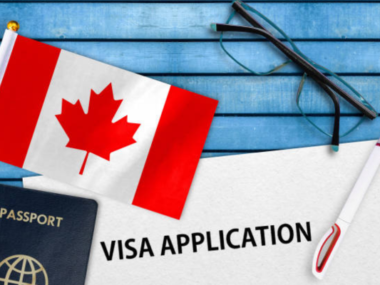Studying in the UK offers a wealth of chances for both professional and personal development, making it a life-changing experience. After completing their education, a common goal for many overseas students is to move to the UK and start a family. A crucial route towards accomplishing this objective is securing permanent residency. We will go over the exact steps involved in obtaining permanent residency in the UK following your academic education in this in-depth guide.
A Comprehensive Guide: UK Permanent Residency and How to Apply 2024
A permanent resident card, also referred to as a “green card,” is a plastic card that is issued by U.S. Citizenship and Immigration Services. It has the individual’s fingerprint, picture, biographical information, and expiration date on it. A green card holder is granted the right to remain and work in the US for an unlimited period.
It still has that name since it used to be green. It is also known as a “Form I-551” and an “Alien Registration Card.” The card is now yellow with the user’s data encoded in a magnetic barcode on the back.
Even though the green card has a 10-year expiration date and must be renewed unless the U.S. government abandons or revokes the card, the holder’s status as a “lawful permanent resident” is still valid.
1. Understand the Types of Permanent Residency
It is essential to comprehend the several categories of permanent residency that are offered in the UK before beginning the application procedure. For former international students, the most popular path is the Indefinite Leave to Remain (ILR), which allows them to live and work in the UK indefinitely.
2. Select the Appropriate Study Visa Category
The first step in obtaining permanent residency is selecting the appropriate visa category for your course of study. For those who are seeking further study in the UK, choosing a Tier 4 (General) student visa is not uncommon. Make sure the course and the school you select qualify for sponsorship under this particular visa category.
3. Fulfil the eligibility requirements
You must fulfil specific requirements during your study year in order to be eligible for permanent residency. This entails keeping your Tier 4 visa valid, showing up for the classes you have registered for, and abstaining from illegal activity. Furthermore, mastering the English language could be necessary.
4. Complete Your Course Successfully
Getting your chosen course completed successfully is a prerequisite for advancing toward permanent residency. Make sure you complete all of the coursework requirements and, if necessary, take part in any required internships or work placements related to your program.
5. Apply for a Post-Study Work Visa (if applicable)
The Graduate Route, often known as the Post-Study Work Visa, was reinstated in the UK as of September 2021, according to the most recent information update. This permits foreign students to stay and work (or search for work) in the UK for two years (or three years for doctorate students) following graduation from a UK higher education institution.
6. Secure Employment or a Job Offer
Possessing a job offer or employment in the UK greatly increases your chances of being granted permanent status. It is advised that you seek employment in a role that matches the degree of experience specified in the UK Visas and Immigration (UKVI) guidelines.
7. To obtain a Tier 2 (General) Work Visa, apply.
The next step is to apply for a Tier 2 (General) work visa if you are hired. Skilled workers who have a job offer can enter the UK with this visa. It is crucial to confirm that your employer is a licensed sponsor and that your job offer satisfies the requirements established by the UKVI.
8. Complete the Requirement for Continuous Residence
You have to meet the continuous residence requirement in order to be eligible for permanent residency. This usually entails residing in the UK for a predetermined amount of time while holding a valid visa, such as a Tier 2 (General) work permit, and not taking any major vacations.
9. Request an Indefinite Leave of Absence (ILR)
After fulfilling the necessary duration under the Tier 2 (General) visa, you are eligible to submit an application for Indefinite Leave to Remain (ILR). You are declaring your desire to live permanently in the UK with this application. It is essential that you complete this process by sending in the required paperwork and paying the relevant costs.
10. Get ready for the test on life in the UK.
You might be asked to take the Life in the UK test as part of the ILR application process. This exam evaluates your familiarity with British principles, habits, and traditions. It’s important to prepare adequately for the test, and there are tools available to assist with your study.
11. Demonstrate English Language Proficiency
You could occasionally be required to submit an ILR application that includes proof of your fluency in the English language. You can demonstrate your proficiency in the English language by taking accredited examinations like the IELTS, which will fulfil this need.
12. Think About Getting Legal Help
It can be difficult to navigate the immigration procedure, so getting legal counsel is a wise move. Immigration attorneys can offer helpful advice, guarantee that your application is correct and comprehensive, and support you every step of the way.
Conclusion
It’s no secret that after graduating from college, acquiring permanent status in the UK is a challenging but worthwhile procedure. Every stage of the process, from selecting the appropriate visa category to fulfilling the requirements, finding work, and submitting an application for Indefinite Leave to Remain, is essential to the overall success of your trip.
Understanding and assiduously adhering to these stages will improve your prospects of establishing a permanent residence in the UK and taking advantage of all the opportunities it presents. Recall that obtaining permanent residency in the UK requires you to remain informed and seek professional assistance when necessary.
Frequently Asked Questions
Who is Eligible for UK Permanent Residency?
- Eligibility criteria vary depending on individual circumstances, such as visa type and duration of stay. Generally, individuals must have lived in the UK for a specified period, usually five years, and meet other requirements regarding immigration status, character, and knowledge of the English language.
How to Apply for UK Permanent Residency?
- Check Eligibility: Review the eligibility criteria based on your current visa and circumstances.
- Prepare Documentation: Gather necessary documents, including proof of identity, residency, employment, and language proficiency.
- Submit Application: Complete the appropriate application form and submit it, along with supporting documents, to the Home Office.
- Biometric Appointment: Attend a biometric appointment to provide fingerprints and a photograph.
- Wait for Decision: The Home Office will review your application and may request additional information or an interview.
- Receive Decision: If approved, you will receive a Biometric Residence Permit (BRP) confirming your Indefinite Leave to Remain status.
How Long Does It Take to Get UK Permanent Residency?
- Processing times can vary depending on the volume of applications and individual circumstances. On average, it may take several months to receive a decision.
Can I Travel While Waiting for UK Permanent Residency?
- Yes, you can typically travel outside the UK while your application is being processed. However, you should ensure that your visa or residency status allows for re-entry into the UK.
Can I Apply for UK Citizenship After Obtaining Permanent Residency?
- Yes, individuals with UK Permanent Residency may be eligible to apply for British citizenship after meeting additional requirements, including a further period of residency and passing the Life in the UK test.
Do I Need to Renounce My Current Citizenship to Get UK Permanent Residency?
- No, obtaining UK Permanent Residency does not require individuals to renounce their current citizenship. The UK allows for dual citizenship in most cases.
What Happens If My UK Permanent Residency Application Is Rejected?
- If your application is rejected, you may have the right to appeal the decision or submit a new application with additional supporting evidence.
Is There an English Language Requirement for UK Permanent Residency?
- Yes, applicants typically need to demonstrate a certain level of proficiency in the English language, unless exempted due to age or other specific circumstances.
Is UK Permanent Residency the Same as Settled Status?
- UK Permanent Residency (ILR) is similar to Settled Status, which is granted to EU citizens under the EU Settlement Scheme. Both statuses confer the right to live and work in the UK indefinitely.




